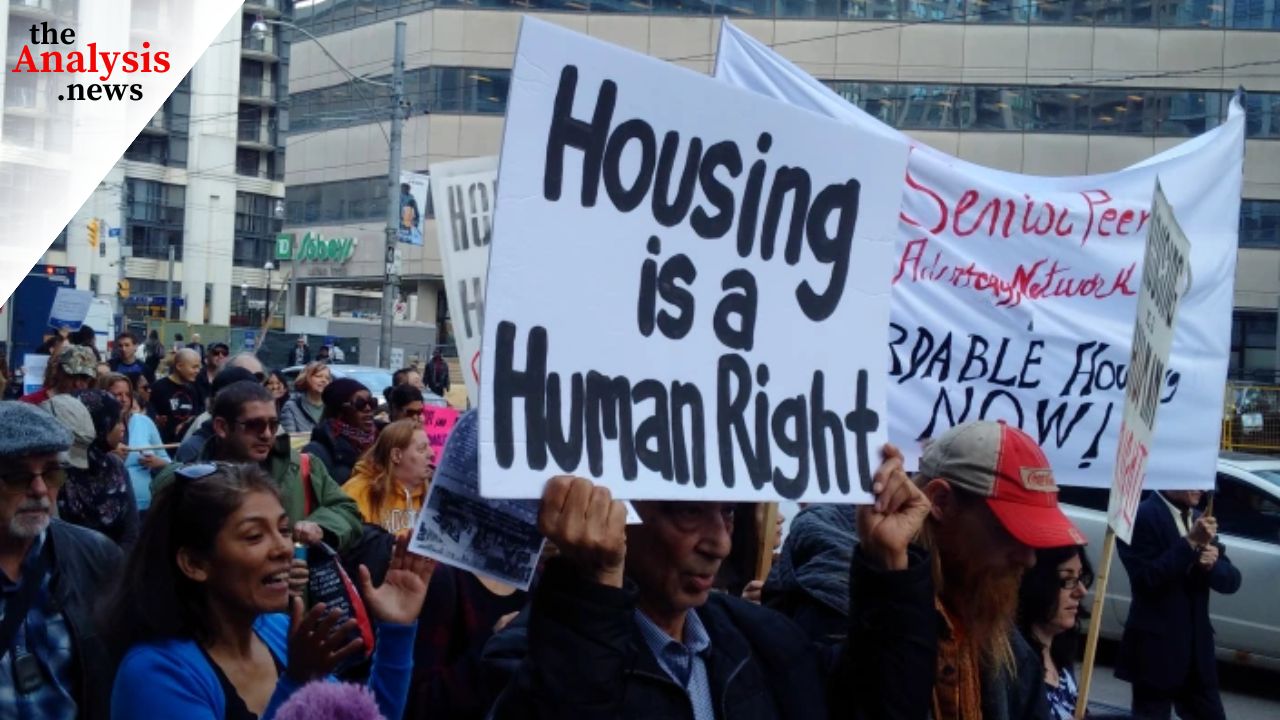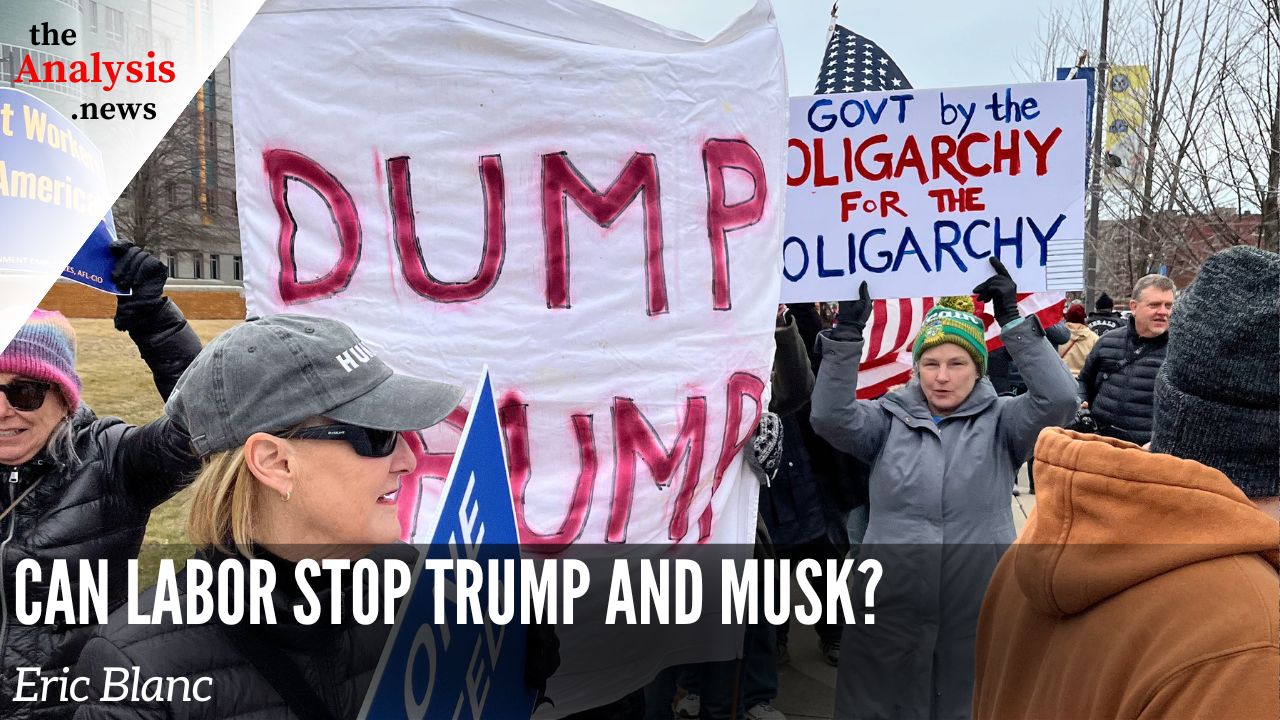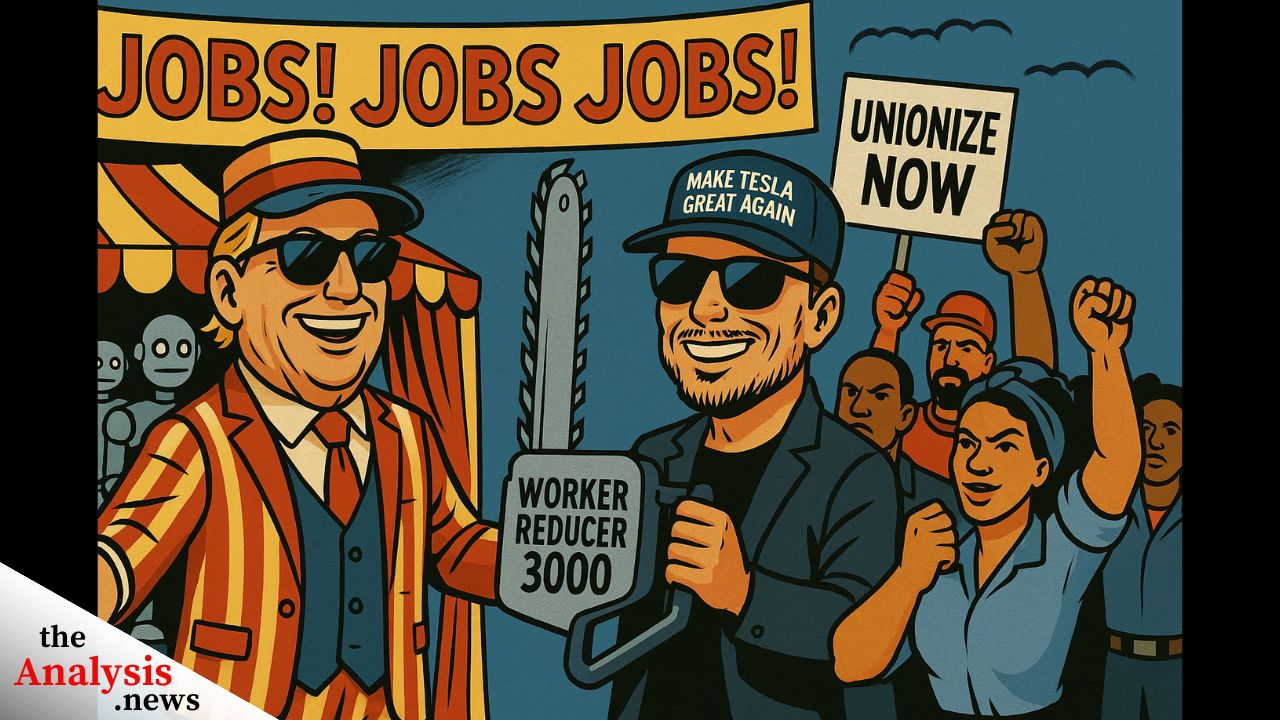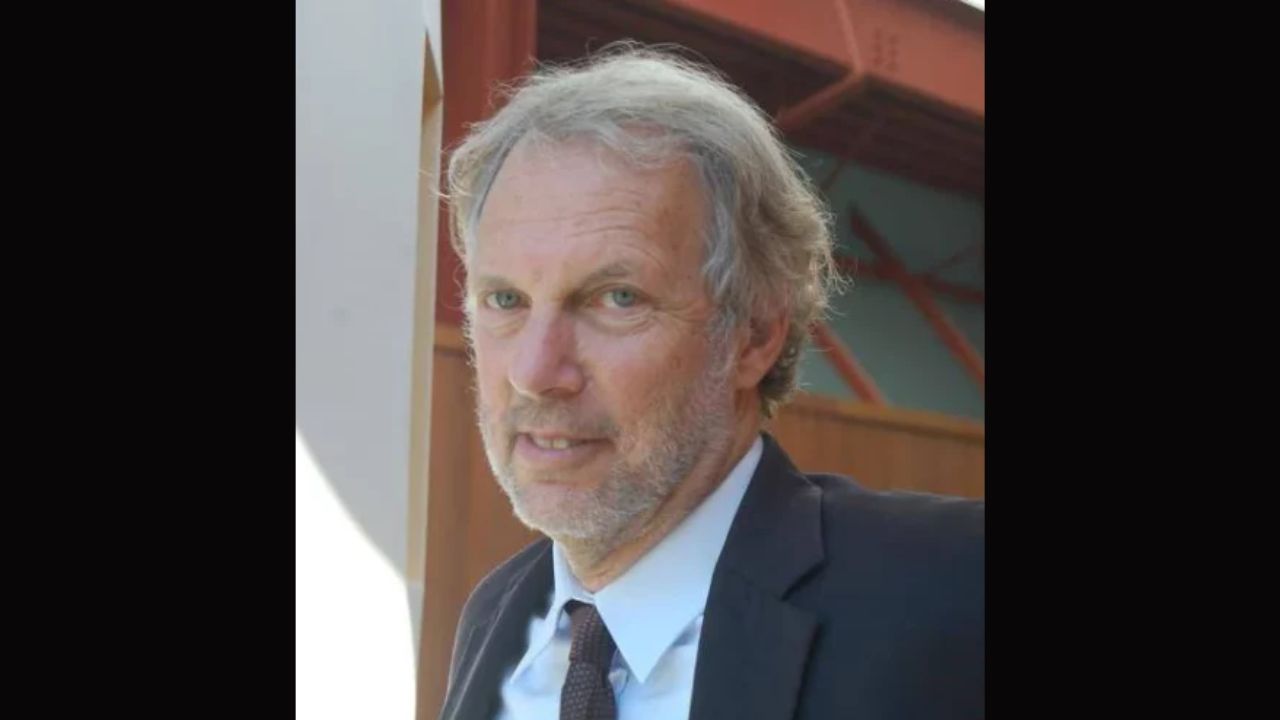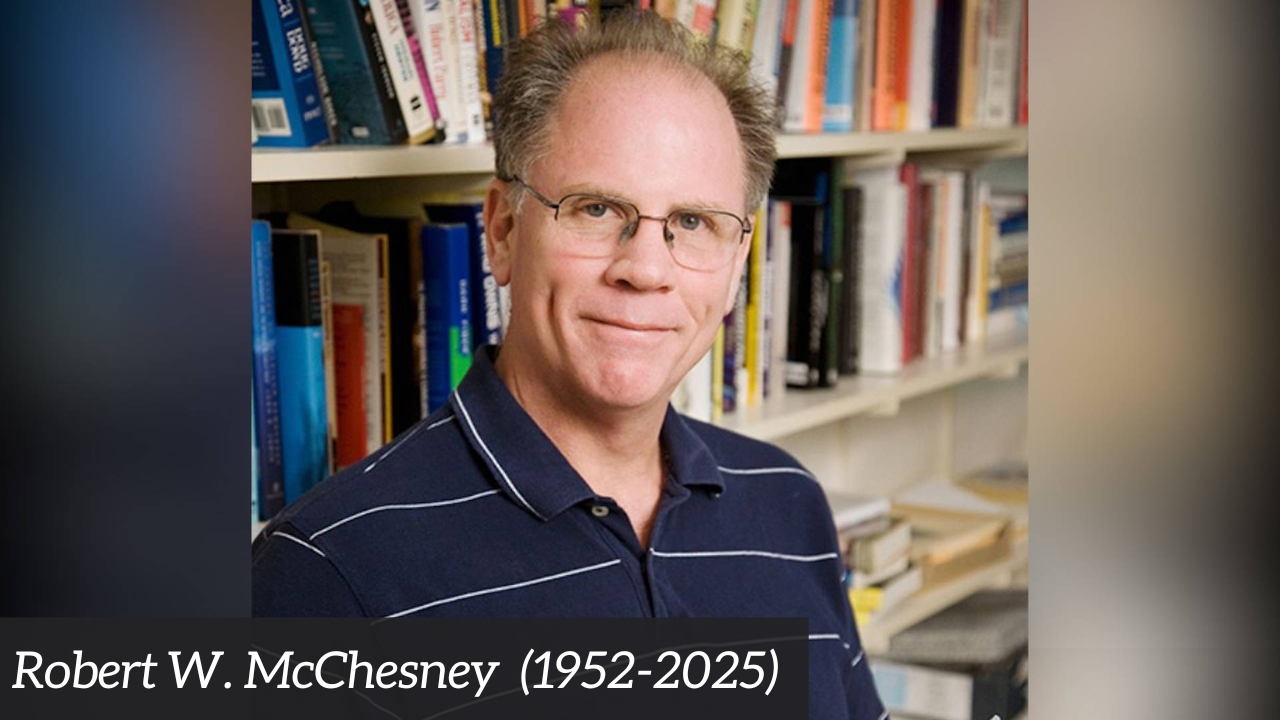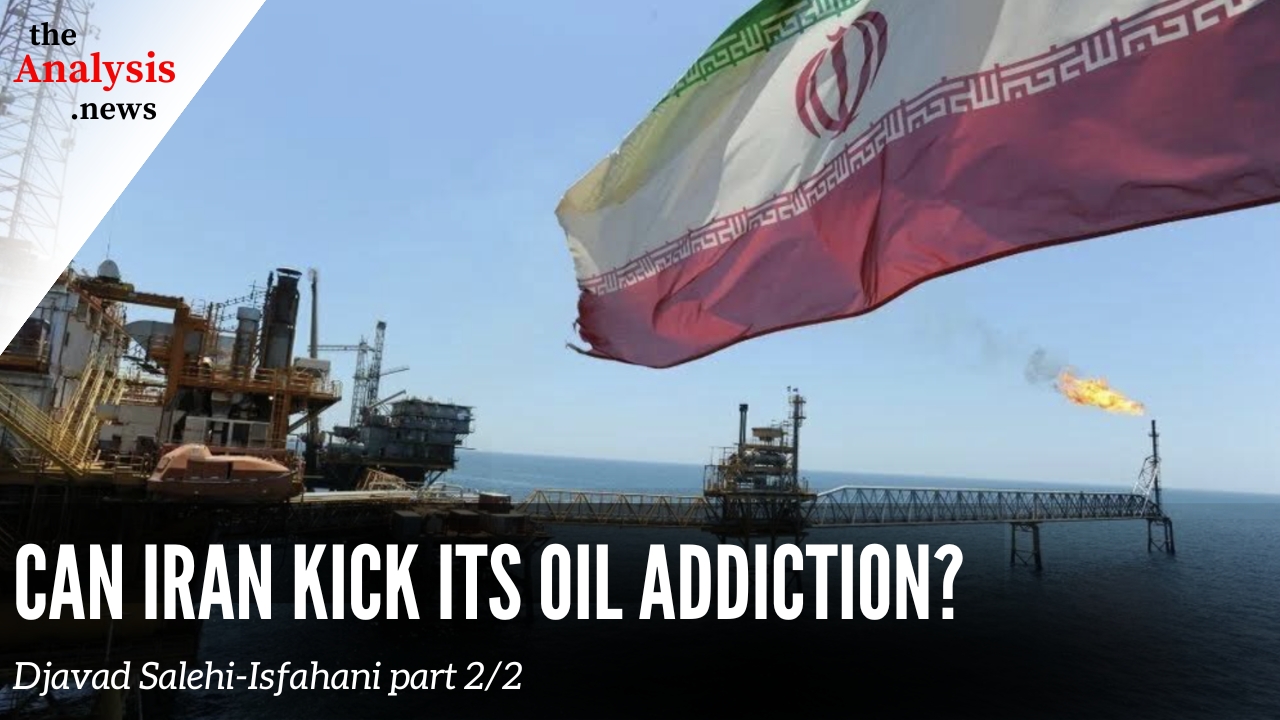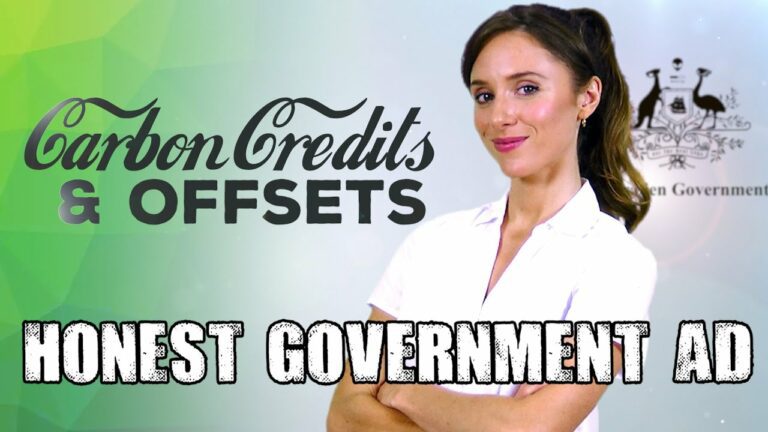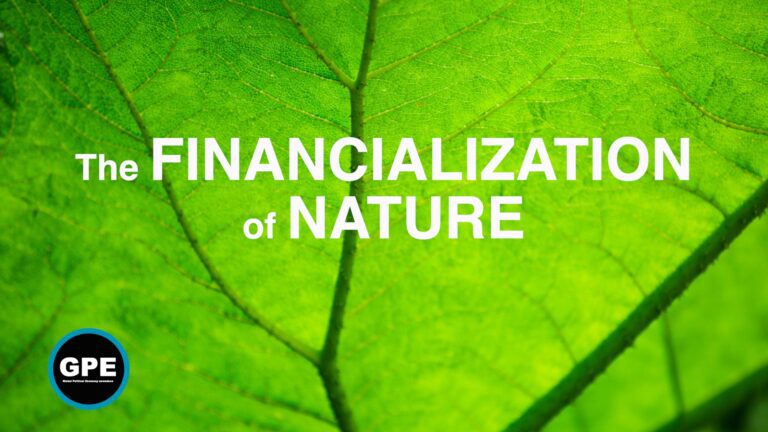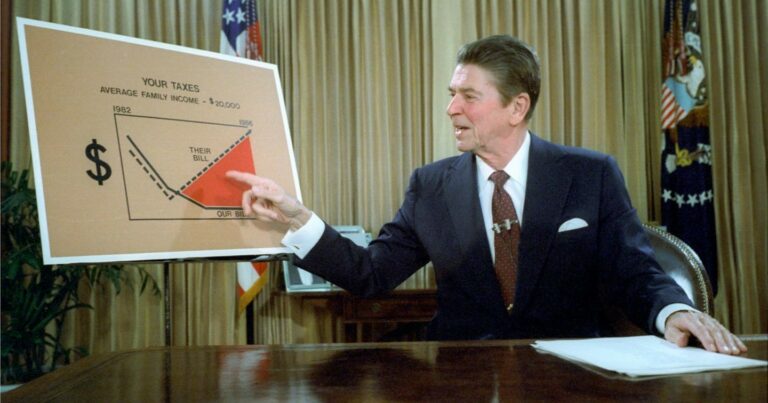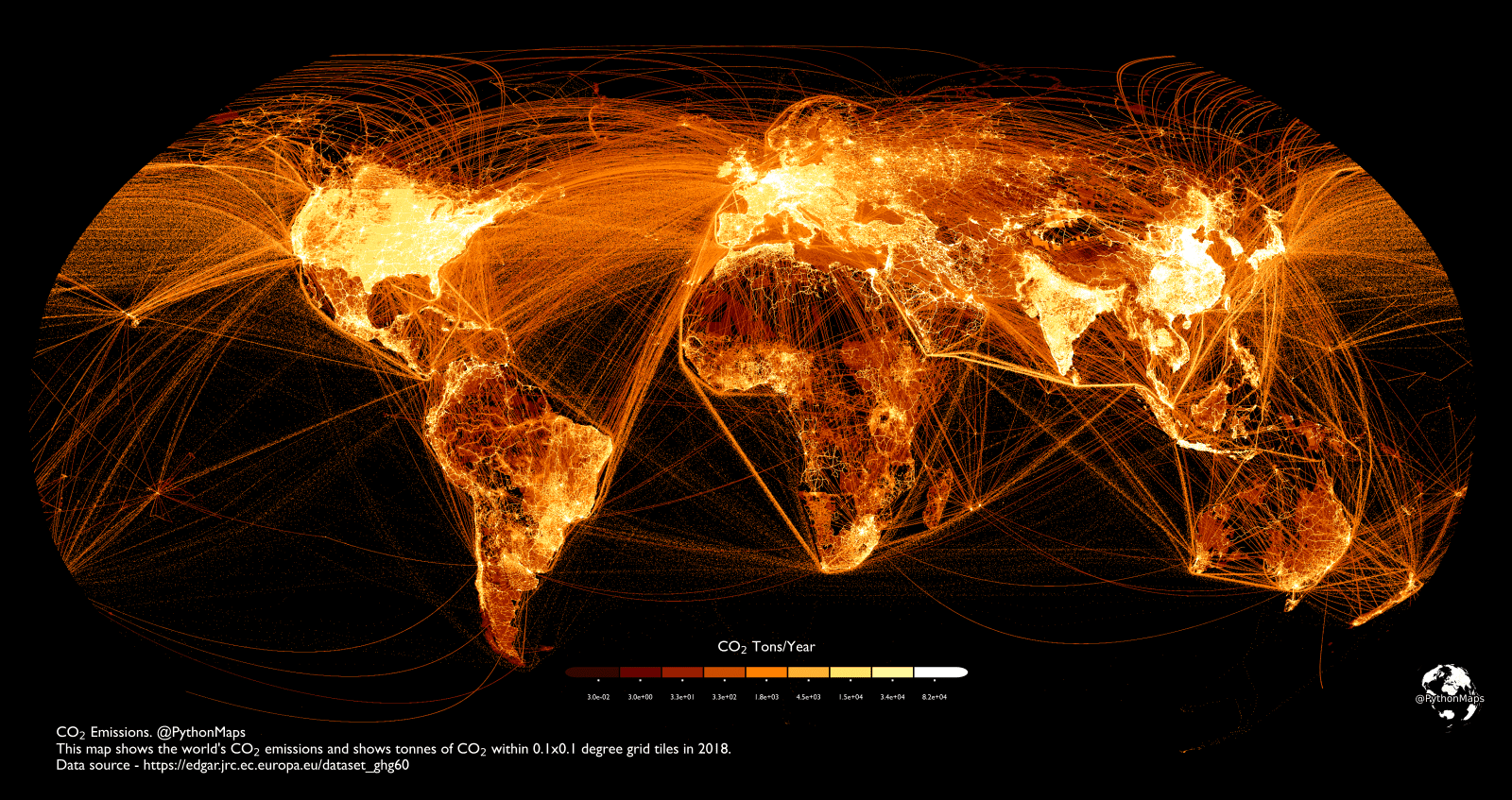Given voters’ concerns over rising food and housing costs, Kamala Harris has pledged to combat price gouging if elected president, though she has yet to clearly lay out the hallmarks of the rest of her economic policy. In part 2, Bob Pollin, economist and advisor to U.S. Senator Bernie Sanders and Representative Pramila Jayapal on Medicare For All, explains the meaning of price gouging and delves into the causes of inflation during the COVID pandemic.
The Political Economy of Saving the Planet – Bob Pollin part 1/2
Talia Baroncelli
Hi, I’m Talia Baroncelli, and you’re watching theAnalysis.news. This is part two of my discussion with Bob Pollin. In part one, we were talking about the Green New Deal, whereas in part two, we’ll be focusing on the economy and inflation.
If you’d like to help us out, you can go to our website, theAnalysis.news, hit the donate button at the top right corner of the screen. Make sure you’re on our mailing list; that way, you always get notified every time we publish new interviews. You can like and subscribe to this show on YouTube, Apple, Spotify, or other podcast streaming services. See you in a bit for part two.
I’m very happy to be joined by Bob Pollin. He is an economist as well as a Professor at the University of Massachusetts, Amherst. He is the co-director of the Political Economy Research Institute, also known as PERI. He served as a consultant to the Department of Energy during the first Obama administration and also advised Bernie Sanders, as well as progressive Democrat Pramilla Jayapal, on issues such as Medicare For All. He co-authored the book Climate Crisis and the Global Green New Deal with Noam Chomsky.
Talia Baroncelli
It’s great to have you back.
Bob Pollin
Thanks for having me on.
Talia Baroncelli
Well, I had a few questions for you about the economy and about price gouging, because a lot of people are speaking about Kamala Harris’s plans to combat price gouging. People like David Sirota from The Lever have come up with the term “greedflation” to explain what happened during the pandemic. He would argue that during the pandemic, a lot of companies were engaging in price gouging in the traditional economic sense of the word, meaning that they were taking advantage of supply chain issues at the time that were caused by the pandemic and increasing prices. There are other ways of understanding price gouging. It could also just generally mean price fixing, increasing prices, or adding junk fees to prices in order to make a profit. What would your general assessment be? Would you say that “greedflation” is a framework to understand what happened during the pandemic, was price gouging taking place, and is it currently taking place?
Bob Pollin
The underlying operating principle of capitalism is greed is good. There’s always greed operating. Yeah, it’s celebrated. Go back to Adam Smith, 1776, The Wealth of Nations. Don’t rely on people’s sense of virtue to get anything done, look at their self-interest. That’s greed.
Now, so the question is, did capitalists become more greedy during the pandemic? Well, no, of course not. But the conditions, as you said, the lockdown led to a global recession. Then the reopening, there were these supply shortages. Generally, also, there was a pent-up demand because people weren’t spending as much. So that created the opportunity for big markups. If we look at the biggest single driver, energy, oil prices, gas at the pump here in the U.S. went from $2.50 to $5; that’s ended. It’s important to realize that it has ended. The latest inflation figures of the U.S., basically, there’s negligible inflation. The official consumer price index is 2.9%, and there are issues of measurement, which I don’t have to get into, but the basic point is we’re back to where we were pre-COVID. Yes, there were huge markups, huge profits, excessive profits. Yes, there should be more aggressive enforcement.
The antitrust laws, if you actually read them, the anti-monopoly laws, promoting competition, they’re pretty good. They’re just never enforced. One of the things I give credit to the people in the Biden administration, especially the leader of the Federal Trade Commission, Lina Khan, who was a very progressive person coming out of a progressive background. She had been trying to enforce, and a lot of people have been denouncing her for exactly trying to enforce the laws on the book. So that can moderate inflationary pressures. But right now, there’s not zero inflation, but zero inflation would be problematic in different ways. There really isn’t a serious inflationary problem anymore.
Talia Baroncelli
Well, Lina Khan’s FTC did publish a report in March of this year, essentially corroborating that price gouging did take place after the pandemic. Kamala Harris has also spoken about price gouging. Some economists were up in arms, saying that her plan doesn’t make any sense and that it’s an abomination.
If you watch CNBC, for example, you’ll hear all sorts of economists like Mark Zandi from Moody’s going on and saying, “There’s no such thing as price gouging in our economy.” They just seem to be really opposed to her potentially supporting Lina Khan. I was wondering what your assessment is of her plans to combat price gouging and whether you think she’ll be as supportive of some of those Biden-era policies that are in support of enforcing antitrust laws.
Bob Pollin
Again, I don’t know where she’s going to land, where Kamala Harris is going to land. I think Biden brought in a lot of excellent progressive policymakers, Lina Khan being one of them. People on the Council of Economic Advisors are very progressive people. I’ve known two of the members of the Council of Economic Advisors. I’ve known them for 30 years in my little world of progressive economists. There are really good people. I don’t know where she’s going to end up relative to these people that Biden put in place. By the way, I was surprised that Biden did what he did.
Greed, inflation, and price gouging, again, these are nice terms for something that we’ve known about forever, which is when oligopolies and monopolies have more excessive power, they will push prices up as far as they can to make the most money they can. The pandemic gave them the opening, post-pandemic gave them the opportunity to be more aggressive with pricing because there were supply shortages and pent-up demand. That was the two things. Demand is bigger, supply is smaller, and that enabled them to jack up prices. That will not be the case all the time. Like right now, it’s not the case. It doesn’t mean that the idea that capitalism is driven by greed is a good idea. It’s not. But that particular feature is not going to be a persistent source of inflation.
If you actually look at inflation over the last 60 years, there’s one factor that is the main driver of high inflation rather than just general 2-3% inflation, and that’s oil prices. When we talk about a green transition as well, that is also addressing the idea of big inflation spikes. If the major factor driving inflation globally, every time when we go from 2-3% to 8% real fast, it’s oil prices. It’s the number one driver. If you have an economy that does not depend on oil so much, that factor is going to be diminished over time.
Talia Baroncelli
Donald Trump keeps saying that it was the Biden admin that was responsible for inflation and that Kamala Harris would also cause this inflationary trend to reproduce itself. Do you agree with that? Can you pinpoint inflation on any one administration, or is it actually more tied to the Fed?
Bob Pollin
From the early 1990s until right up to the pandemic, we had very negligible inflation. I wouldn’t argue even for somewhat higher inflation if the trade-off was better jobs, more employment, and higher wages. We can get into that later if you want.
What happened in the pandemic? We had to basically shut down the global economy. Starting with Trump, continuing with Biden, you have this huge government stimulus to inject demand into the economy, to give people money, primarily with Trump, to give businesses money, to give his friends money. If we hadn’t had those stimulus programs under both Trump and Biden, we wouldn’t have had inflation. We would have had deflation. The prices would have been going down, and we’d be in a great depression. The inflation did occur in part, yes, because the government propped up the economy.
Talia Baroncelli
We should say how much that was. The CARES Act involved, I think, like $2 trillion from the treasury, and was it $2 trillion from the Fed as well?
Bob Pollin
We had basically three rounds of stimulus: two under Trump, March 2020 and December. He had already lost the election. But anyway, so we had this second round, and then we had another one in March, 2021, the rescue plan of Biden. The first injection was about 9% or 10% of U.S. GDP, so that was like two and a half trillion. Then we had another one under Biden. Just months later, another trillion and a half, so it was another 7% of GDP. That’s government spending.
On top of that, you refer to the Fed. What did the Fed do? The Fed was basically pumping $4 trillion into Wall Street. The way they do it is they just buy up the assets. They buy up stocks and bonds of companies that otherwise would be failing. We’re talking about a stimulus program or a counter-crisis program in the range of massive 20% of GDP. Totally unprecedented in peacetime. Nothing like it has ever happened. I’m not exaggerating. I’m not being hyperbolic. Not just in the U.S. but in Europe as well and other advanced economies.
Yes, having the economy not collapse meant that there was a floor through which prices were able to rise. Yes, there was much higher inflation than had been in the recovery after the pandemic. But to me, that’s the better option than deflation. The deflation, yeah, we could have had prices going down, and the way prices would have gone down is that we’d be in a complete depression. Nobody would have money to spend on anything.
Talia Baroncelli
But the argument then was that you would put all this money into the economy. You would give this money to companies so that they could continue to pay their workers. But some workers were still let go, and I think some companies were still engaging in horrible practices such as stock buybacks. How much of that money was perhaps wasted in a way?
Bob Pollin
A lot, but not all. There was a shift between the Trump program and the Biden program. The Trump program was more focused on giving money to corporations without strings. The Biden program was more focused on giving money directly to workers, unemployment insurance, to families through the child tax credit, and that was a huge success. It briefly actually succeeded in lowering child poverty by 50%. Those were all part of the stimulus programs.
Even still, yes, of course, nobody said you’re not allowed to engage in stock buybacks. Some of that did happen. So the question is, how much of it was just propping up companies that didn’t need to be propped up and making rich people richer? There was some of that, more so with Trump.
On balance, though, in the absence of it, we would have had a depression. That’s my firm belief. We would have had lower prices. But that is a problem, but it is not the worst problem. The worst problem was 25% unemployment. When the lockdown started in March 2020, the unemployment rate was, I think, about 3.4%. In one month, it went up to 14.5%. Then, thanks to the various stimulus programs, it came right back down, which again, unprecedented that you would have a spike of unemployment, 10 percentage points, and then it would come right down in a matter of months.
Talia Baroncelli
Well, in 2022, you wrote an article in The Nation called The Federal Reserve Attacks American Workers, and you were attacking the Chairman of the Fed, Jerome Powell. At the time, the interest rates were really high, and I guess he was trying to change those employment numbers. Are you still disapproving of what he’s been doing recently?
Bob Pollin
Yeah. Well, the basic premise is that the way you control inflation is by raising the unemployment rate. That remains the basic premise. Even today, now we’re down at 2.9% official inflation. The new jobs report just came out an hour or so ago. We’re at 4.2% official unemployment, which is historically pretty good. It’s not as low as it was just months ago.
The longer-term issue is we, in the U.S., have experienced 50 years of wage stagnation. The average worker pay, as of the most recent data, after controlling for inflation, is where it was in 1972. On average, the average non-supervisory workers’ average pay is exactly where it was 50 years ago. Meanwhile, The average corporate CEO’s pay has gone up, depending on how you measure it, 10 to 15-fold. So if you are, roughly speaking, the average worker, let’s say, makes $50,000 in 1972 and makes $50,000 now. The average CEO made a million and a half in 1972. It is making $20 million now. So the Fed does not have any policy to acknowledge, much less do anything about inequality.
The notion is that the way we control inflation is by laying off workers thereby preventing workers from gaining bargaining power. That’s what it is. We dress it up with a lot of fancy stuff, but that’s basically what it is. It is when we see inflationary pressures rising, we want workers to have less bargaining power. What is the easiest way to have workers lose bargaining power? Lay them off. Tell them you don’t have a choice. Take what you can get. Don’t bargain for higher wages. So that’s the underlying structure, and that’s the deep issue that needs to change. If I had to characterize one thing that reflects everything about neoliberalism, that’s it. We run a capitalist economy on the idea that workers should never have bargaining power.
Talia Baroncelli
Some people are rightly worried by certain advisors in Kamala Harris’s campaign. Her brother-in-law, Tony West has joined her campaign, and he used to actually work for the Department of Justice during the Obama administration and was involved in a lot of the foreclosures. She actually, as Attorney General at the time in 2011, opposed some of the settlements he was trying to bring about. So that is a good thing that she did. There’s a lot of reporting on that. Ever since then, he moved on to work for Uber to serve as legal counsel there. He was involved in litigation, which was trying to designate Uber workers as gig workers in which they wouldn’t really receive proper benefits. They’re currently earning below the minimum wage in California, so they’re not earning enough. Kamala Harris also just announced that she would not adopt Biden’s proposed 39.6% capital gains tax on people earning over a million U.S. dollars. This was his proposal for 2025, and she’s proposed to have a 29% capital gains tax, which is much less. Is this cause for concern for you?
Bob Pollin
Absolutely. Well, I don’t know anything about Tony West much, except what you just said, plus he’s Kamala’s brother-in-law. He’s going to have her ear because he’s her brother-in-law. Who else is she listening to? I’m not sure. Again, just to say that if we’re dealing with the reality of the world today and 50 years of neoliberalism, the economic team that Biden put in place is about as progressive as we could envision. They’re people who understand the arguments against neoliberalism. They know the policy alternatives. They’ve managed to succeed in some places, not entirely. When Biden says, “I’m the most pro-union President in U.S. history,” it’s not false. How successful they’ve been at transitioning to worker power, increasing, I think they had some success. It would be great if Harris is able to commit to that and continue it. I don’t know. If the only person she’s listening to is her brother-in-law, it’s not a good sign. Let’s put it there.
Talia Baroncelli
A lot of the progressive policies that we actually have right now are a result of mobilizing and organizing from the side of climate activists. In 2019, the reason why Harris actually said she wanted to ban fracking was because of the Sunrise Movement. To me, it seems like the climate activists maybe don’t have as much leverage at the moment, or perhaps they’re just not being listened to. What do you make of that?
Bob Pollin
Yeah, absolutely the case. That Sunrise Movement is great. In fact, it started at my own campus, UMass, Amherst. That said, I don’t want to give them all the credit, but I think that just the general Green New Deal movement was enormously successful in getting the message out that you can address climate change and do it in a way that’s good for workers and communities. That idea filtered into the highest levels of the Biden administration, such that Biden himself adopted it. Certainly not in the way that I would, but it was there. I think that it has lost some of its salience, its luster, and the fact that Harris calculated that she has to backtrack on this issue of fracking is not a positive development. That said, if she wins, the movement that really moved politics in a dramatic way in this country and elsewhere can keep doing it. Obviously should, and we know how to succeed and continue to succeed in that way.
Talia Baroncelli
Maybe one thing that plays into this is what political scientists term attention fatigue. Some people can’t really focus on more than a handful of issues at once. Activists are making a concerted effort to push Harris on her foreign policy for her to stop Israel from its ongoing genocide against the Palestinians. But obviously, the climate movement does need to double down on its efforts to push Harris in the right direction.
Bob Pollin
Yeah, sure. Look, again, if we take climate science seriously, we are facing an existential crisis. Either we face it and do something about it, or we are going to see the growing severity in all places, especially in low-income countries. Therefore, it’s not like there’s any choice. All the people that were focused on climate issues and managed to achieve pretty good successes in terms of impacting mainstream policy– In Europe, as you know, the official policy, they don’t say Green New Deal, they say the Green Deal. Again, it’s not exactly what I would have designed, but it’s decent and at least is going in the right direction. Those things need to be re-energized. Hopefully after November, we will get there.
Talia Baroncelli
All right, Bob Pollin, it’s been great speaking to you. Thank you so much for joining theAnalysis.news.
Bob Pollin
Okay. Really nice to talk to you. Thank you.
Talia Baroncelli
Thank you for watching theAnalysis.news. If you’d like to help us out, you can go to our website, theAnalysis.news, and see you next time.
Podcast: Play in new window | Download | Embed
Subscribe Apple Podcasts | Spotify | Android | iHeartRadio | Blubrry | TuneIn | Deezer | RSS
Never miss another story
Subscribe to theAnalysis.news – Newsletter
Robert Pollin is an American economist and professor at the University of Massachusetts Amherst, where he is also founding co-director of its Political Economy Research Institute. Pollin received his PhD in economics from the New School for Social Research in 1982

